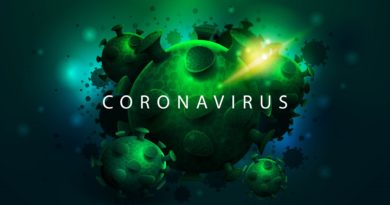Fact check: COVID-19 tests are real, masks work, despite false claims to the contrary
The claim: COVID-19 tests aren’t real, masks don’t work and other assertions
The coronavirus has claimed the lives of 290,000 Americans and infected 15 million others. Following infection spikes in the spring and summer, the pandemic’s winter wave has already surpassed previously set infection and death records and shows no sign of slowing down.
The Trump administration — as well as other conservative officials following its lead — has taken a relatively hands-off approach to the management of COVID-19, having individual states to develop a response to the virus instead of implementing a national plan.
A lack of consistency in messaging and restrictions has led to confusion and agitation among the public, helping conspiracy theories and falsehoods about the severity of the virus thrive on social media.
A Nov. 17 Instagram post from Mask Awareness, an account that posts baseless conspiracy theories, claimed, “There is no such thing as a CV19 test. This is an indisputable fact.” The post includes a widely shared meme with a photo of actor Chris Farley surrounded by the words “For The Love of God, Stop Getting Tested.” The post’s caption lists six other false claims about the validity of COVID-19 tests and urges people to refrain from getting tested.
USA TODAY has reached out to the account for comment.
Meanwhile, we’ll assess the truth of each claim.
More:Fact check: A false post on social media claims COVID-19 vaccine causes infertility in women
The virus was isolated in a laboratory
The post claims that the CDC “admits” it has never isolated or identified COVID-19, making it impossible to test for.
“The PCR tests they’re doing don’t test for any kind of specific virus at all, they test for RNA and DNA which is easy to find as they are the basis of all viruses,” the post claims. “So anyone who’s had the flu or the flu shot in recent years or is overly stressed is likely to test positive.”
In a post on its website, the CDC states, “SARS-CoV-2, the virus that causes COVID-19, was isolated in the laboratory and is available for research by the scientific and medical community.”
Additionally, according to the Food and Drug Administration, there are two types of coronavirus tests; diagnostic, which shows if the person being tested has the coronavirus, and antibody, which identifies antibodies that are made in response to a virus.
The diagnostic test comes in two forms: molecular tests, which include PCR tests that detect the virus’s genetic material, and antigen tests that detect proteins from the virus.
Our ruling: These claims are false. The coronavirus was isolated in a lab and is detected in testing, and coronavirus PCR tests do not yield a positive result for those who have received a flu shot or are “overly stressed.”
Claims about masks, positive tests
The post also claims, and attributes to the CDC, that “70%+ of people wearing masks full time test positive for CV19. But that’s not all, fruits, goats, swabs of alcohol and wastewater are amongst dozens of items that all also tested positive for CV19.”
The claim that 70% of full-time mask wearers tested positive for the virus likely comes from a study by the CDC that has been widely misinterpreted. The goal of the study was not to determine the effectiveness of masks, but rather to determine how the coronavirus spreads in communal environments like restaurants and coffee shops, where it can be hard to keep masks on (like while eating and drinking) and maintain social distance.
The study found that 85% of those who tested positive for the coronavirus reported wearing masks either often or always. For those who did not test positive for the coronavirus, 88.7% reported wearing masks frequently.
It is misleading and inaccurate to claim that “70% of people wearing masks full time test positive for COVID-19,” because the study intentionally asked participants about higher risk environments where the virus spreads more easily. Also, that was not what the study was investigating.
The post’s claims about various items testing positive for the coronavirus likely originates from comments made by Tanzania’s president, John Magufuli, who said he sent various samples, like fruit, to a lab to get tested and they came back positive. Snopes fact-checked Magufuli’s claims, as well as viral social media posts about them, in May and determined that the claims were “unproven” and noted that there was no evidence beyond the Magufuli’s own statement.
The post also claims the “CDC and other health agencies worldwide have had to admit that untold thousands of PCR test sent to numerous countries were pre-contaminated with the coronavirus.”
In May, The New York Times and The Washington Post reported on contaminated coronavirus tests from the CDC that ultimately delayed reliable testing for the public. However, the reports also state that the contaminated tests began showing issues before being sent to state labs.
Our ruling: These claims are rated misleading and false. In the first claim, about the effectiveness of masks, the post misinterprets a study from the CDC. The second claim about other items testing positive for COVID-19 appears to rely on a statement that has no supporting evidence. Additionally, the CDC “and other health agencies” did not admit that thousands of PCR tests were pre-contaminated and sent to other countries.
DNA detection in testing
The post claims that one of the World Health Organization’s “publicly posted primer sequences in the PCR test for SARS-CoV-2 is found in all human DNA … , which means that by default these tests are designed to test positive in any person if they are amplified enough.”
In April, Health Feedback, a network of scientists who separate fact from fiction, debunked this claim, which is based on a report from the World Health Organization. They concluded that it is flawed in reasoning and “fails to grasp significance of observation.”
According to Health Feedback, “even when an RT-PCR test for SARS-CoV-2 uses a primer that matches a human gene sequence, the test would not produce a positive result with human DNA alone because the other primer does not match the human gene sequence.”
Our ruling: This claim is false. PCR tests do not give positive results based on the amplification of human DNA.
Testing efficacy in the United Kingdom
Lastly, the post claims, “as of August 2020, the UK government has conceded there is a 93% false positive rate to the testing, yet people keep still being told to get tested.”
This claim went viral in October — and was debunked — and comes from a BBC video of British Prime Minister Boris Johnson saying, “The particular problem is that everyone thinks you can have some test at the airport that will answer whether you’ve got it or not; unfortunately it only works in 7% of the cases, 93% of the time you could have a real false sense of security, false sense of confidence when you arrive and take a test.”
False positive results are when a coronavirus test comes back positive for someone who does not actually have the virus. This is not what Johnson is talking about, as he was speaking specifically about airport testing missing infected travelers — the opposite of what the claim states.
Our ruling: This claim is FALSE. Johnson’s comments were specific to airport testing not catching people are positive for the virus, and there is no evidence that 93% of testing in the UK yields false positive results.
Our ruling: False
The myriad claims in this post are rated FALSE. They rely on unproven and unsupported claims or cite misinterpreted data and misleading quotes from public officials.
Our fact-check sources:
- CDC, Oct. 27, 2020, SARS-CoV-2 Viral Culturing at CDC
- Food and Drug Administration, Coronavirus Disease 2019 Testing Basics
- CDC, Community and Close Contact Exposures Associated with COVID-19 Among Symptomatic Adults ≥18 Years in 11 Outpatient Health Care Facilities — United States, July 2020
- Snopes, May, 7, 2020, Did Tanzania’s President Expose Faulty COVID-19 Testing by Submitting Non-Human Samples?
- Reuters, July 14, 2020, Fact check: Contaminated CDC COVID-19 test kits recalled and did not spread virus
- The Washington Post, April 18, 2020, Contamination at CDC lab delayed rollout of coronavirus tests
- Health Feedback, April 6, 2020, Human DNA does not produce a positive result on the RT-PCR test for SARS-CoV-2
Thank you for supporting our journalism. You can subscribe to our print edition, ad-free app or electronic newspaper replica here.
Our fact check work is supported in part by a grant from Facebook.
*** This article has been archived for your research. The original version from USA TODAY can be found here ***


